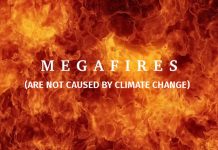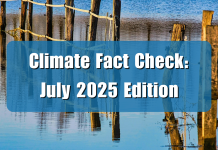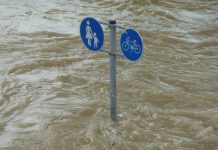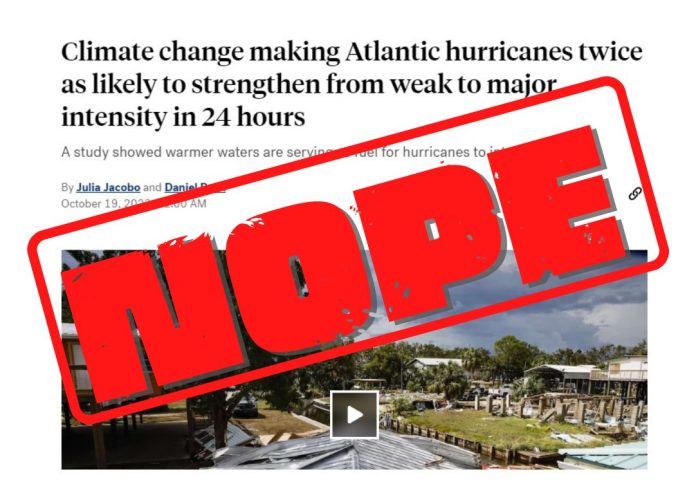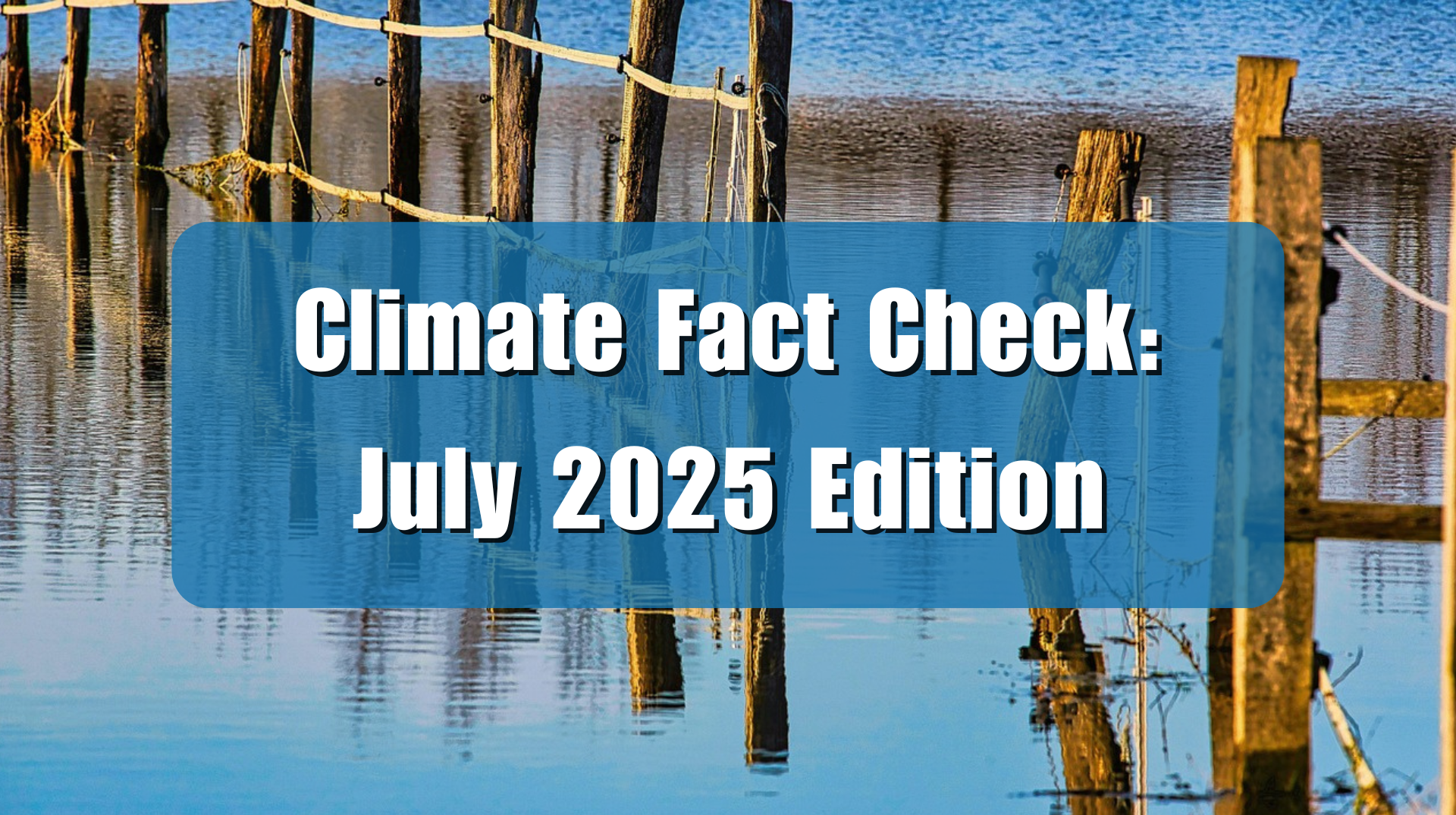The mainstream media, among them ABC News, Reuters and the New York Times, ran prominent stories claiming new research shows that Atlantic hurricanes have now become much more likely to strengthen into powerful hurricanes in a short period of time than in the past due to climate change. This is false. Whatever factors the studies researchers say are making powerful hurricanes more likely to quickly form, must be being counteracted by other factors because data shows that powerful hurricanes are actually on the decline.
As ABC News reports in an article, titled “Climate change making Atlantic hurricanes twice as likely to strengthen from weak to major intensity in 24 hours,” a new study in Science Direct claims warming oceans are making rapid powerful hurricane formation more likely to form.
“Tropical cyclones in the Atlantic basin may now be more than twice as likely to strengthen from a weak hurricane or tropical storm into a major hurricane in just 24 hours due to climate change and warming waters, a new study suggests,” says ABC News. “Hurricanes are also now more likely to strengthen more rapidly along the East Coast of the U.S. than they were between 1971 and 1990, the paper, published Thursday in Scientific Reports found.”
Warm ocean temperatures are a necessary, but not a sufficient factor for hurricane formation. Data indicate, regardless of ocean heating, hurricanes have not formed more frequently during the period of the study or since, and powerful hurricanes, Category 3 and above, have actually declined over the periods of comparison. As a result, even if warming oceans make the rapid formation of powerful hurricanes more likely, confounding factors, evidently not accounted for in the study, have been suppressing the actual formation of powerful hurricanes.
Data presented in more than 100 previous Climate Realism posts, here, here, here, and here, for example, clearly show that hurricane trends are relatively flat over the past 50 years of modest warming, and the trend in powerful Atlantic hurricanes is downward (see the figures below)
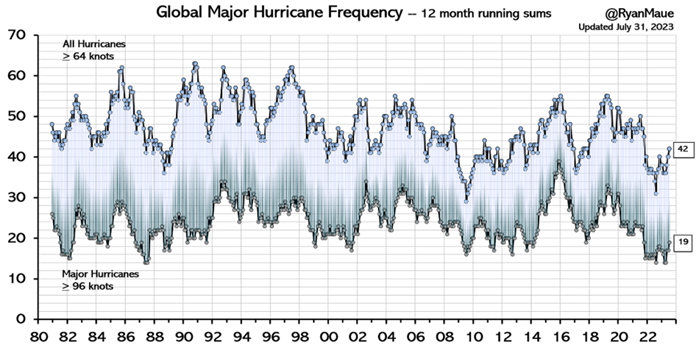
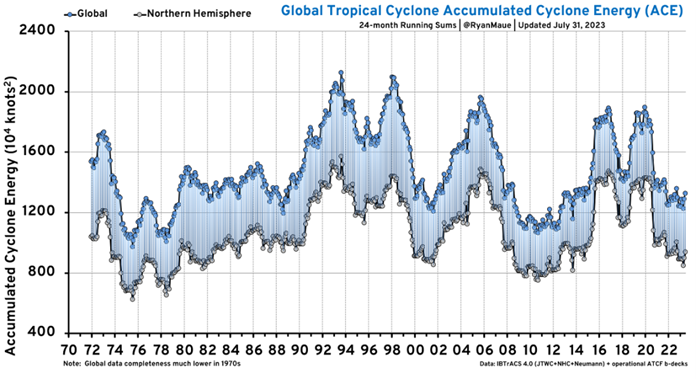
In point of fact, as discussed in Climate at a Glance: Hurricanes, even the U.N. Intergovernmental Panel on Climate Change (IPCC) admits to finding no increase in the frequency or severity of hurricanes. Also, the United States recently went through its longest period in recorded history without a major hurricane strike, and recently experienced its fewest total hurricanes in any eight-year period. And what’s true for the Atlantic hurricane basin is true for the other major hurricane basins as well. There has been no increase in the number or intensity of tropical cyclones since 1972 as the planet has modestly warmed. Indeed, for some basins the data suggests tropical cyclone frequency has actually declined over the past century.
What do the scientists mean when they say conditions are making it “more likely” or “twice as likely” for powerful hurricanes to form, when fewer powerful hurricanes are, in fact, forming? It’s like a casino claiming they’ve made it more likely than ever for gamblers to win, even as casino goers lose greater amounts more frequently: quite frankly, the claims and the facts just don’t line up.
One might think, considering the IPCC’s pronouncements about finding no evidence human caused warming is causing an increase in hurricane numbers or severity and the copious publicly available data which underpins the IPCC’s assessment, the media might finally get the hint on hurricanes. Journalists should display a bit more skepticism concerning the latest novel, unverified study claiming hurricanes are getting worse due to global warming. Sadly, this is not the case. The media follows the narrative that purported human caused climate change is causing worsening weather, in this case hurricanes, regardless of facts demonstrating otherwise. For the mainstream media with regard to climate change, their motto seems to be, “damn the facts, full speed ahead with the climate crisis narrative.”


